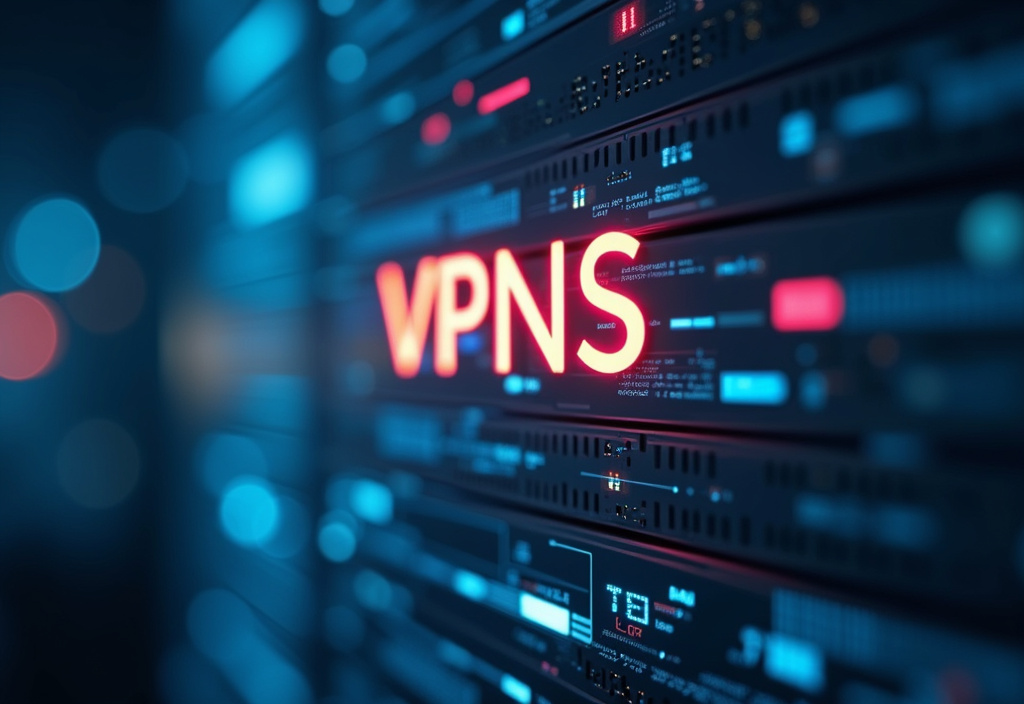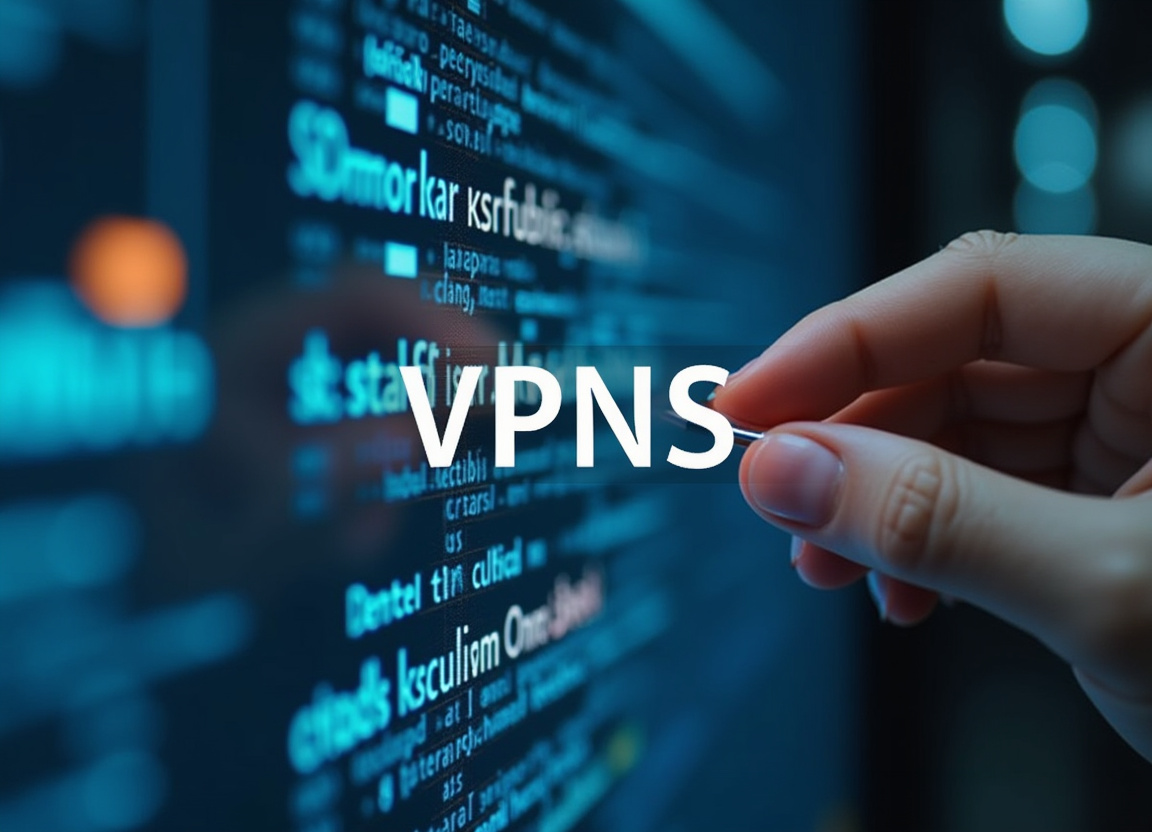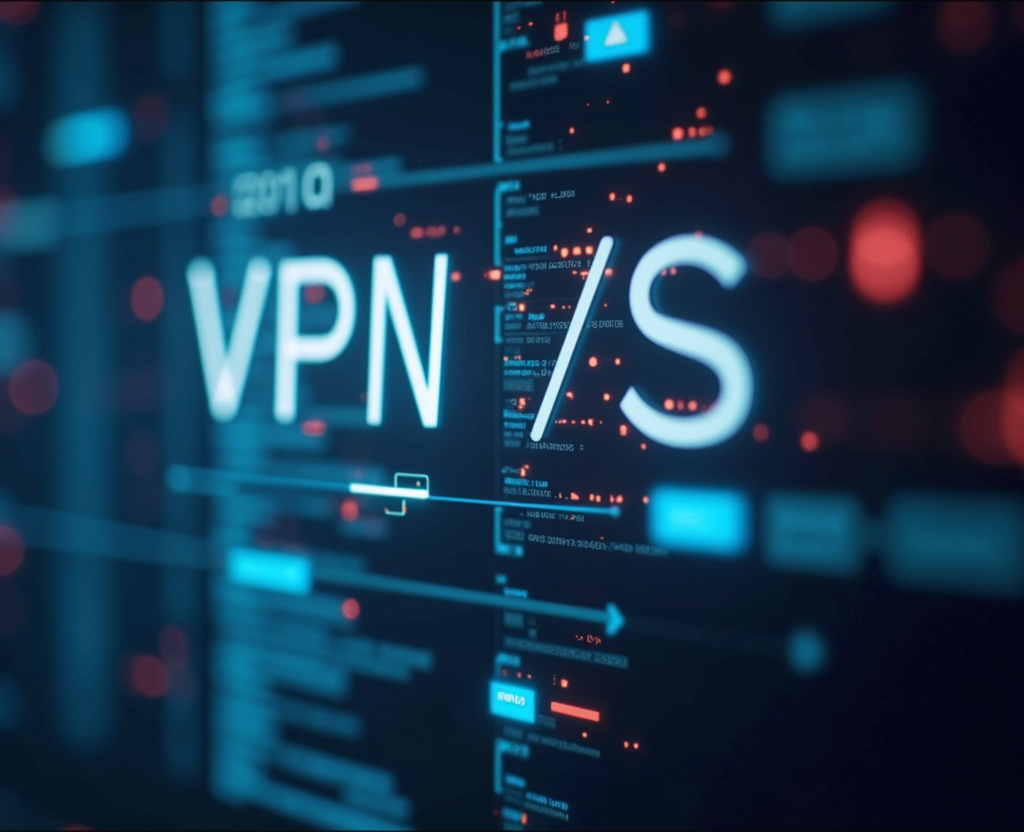VPNs for Telecommunications: Securing Network Infrastructure

Table of Contents
The Critical Role of VPNs in Modern Telecommunications
The telecommunications industry, the backbone of modern communication and data exchange, faces an escalating barrage of cybersecurity threats. Protecting sensitive customer data, upholding service reliability, and preserving the integrity of network infrastructure have become paramount concerns. Virtual Private Networks (VPNs) stand out as a crucial line of defense, providing secure and encrypted communication channels that bolster network infrastructure security in this vital sector.
This article explores the multifaceted role of telecommunications VPNs in safeguarding vital network resources, shielding sensitive data, and ensuring uninterrupted service delivery, delving into their underlying principles, deployment strategies, and tangible benefits. In an era characterized by increasingly sophisticated cyberattacks, telecommunications companies must proactively adopt robust security measures, and VPNs offer a strategic advantage in mitigating risks and maintaining a secure and trustworthy digital environment. The pervasive nature of the Internet and the growing reliance on digital communication have exposed telecommunications networks to a diverse range of threats, including data breaches, malware infections, denial-of-service attacks, and unauthorized access attempts.
These threats can have devastating consequences, including financial losses, reputational damage, service disruptions, and legal liabilities. To combat these threats, telecommunications companies must implement a layered security approach that encompasses a variety of technologies and protocols. VPNs play a critical role in this layered security approach by providing a secure and encrypted channel for communication between different parts of the network, as well as between the network and remote users.
A telecommunications VPN operates by creating a secure "tunnel" through the public internet, encrypting all data transmitted within the tunnel. This encryption prevents unauthorized parties from intercepting and reading the data, ensuring confidentiality and privacy. The VPN also authenticates the parties involved in the communication, ensuring that only authorized users and devices can access the network.
This authentication process typically involves the use of strong passwords, digital certificates, or multi-factor authentication methods. The implementation of a telecommunications VPN requires careful consideration of various factors, including the size and complexity of the network, the sensitivity of the data being transmitted, the performance requirements of the applications being used, and the budget constraints of the organization. A variety of VPN protocols are available, each with its own strengths and weaknesses.
Some of the most common VPN protocols include IPsec, SSL/TLS, and L2TP/IPsec. IPsec is a widely used protocol that provides strong security and is suitable for a wide range of applications. SSL/TLS is commonly used for securing web traffic and can also be used for VPN connections.
L2TP/IPsec is a combination of two protocols that provides both tunneling and encryption, offering a high level of security. In addition to selecting the appropriate VPN protocol, telecommunications companies must also choose the right VPN software or hardware to implement the VPN. A variety of VPN software and hardware solutions are available, ranging from open-source software to commercial appliances.
The choice of VPN software or hardware will depend on the specific requirements of the organization, including the number of users, the amount of bandwidth required, and the level of security needed. Once the VPN has been implemented, it is important to regularly monitor and maintain it to ensure that it continues to provide the desired level of security and performance. This includes monitoring the VPN for any signs of attack or compromise, patching any security vulnerabilities that are discovered, and updating the VPN software or hardware as needed.
By proactively managing their VPNs, telecommunications companies can ensure that they remain a valuable asset in their overall security posture. Furthermore, the adoption of telecommunications VPNs demonstrates a commitment to network infrastructure security, builds customer trust, and ensures the reliable delivery of essential communication services in an increasingly interconnected world.
Understanding VPN Technology and its Benefits for Telecom
Beyond the core objective of enhancing security, telecommunications VPNs contribute significantly to optimizing service reliability and bolstering network performance – critical factors influencing competitiveness and customer satisfaction within the telecommunications landscape. By strategically managing data routing, minimizing latency, and optimizing bandwidth utilization, VPNs can create a more efficient and responsive network environment. This translates to tangible benefits for both service providers and end-users, fostering a positive experience and strengthening brand loyalty.
One of the key ways in which VPNs improve service reliability is by providing a redundant pathway for data transmission. In the event of network congestion or outages on the primary network path, the VPN can automatically reroute traffic through an alternative path, ensuring that services remain available and uninterrupted. This redundancy is particularly important for mission-critical applications, such as voice over IP (VoIP) and video conferencing, where even brief interruptions can have a significant impact on performance.
By providing a resilient network infrastructure, VPNs help telecommunications companies meet their service level agreements (SLAs) and maintain customer satisfaction. Furthermore, VPNs can be used to optimize network performance by reducing latency and improving bandwidth utilization. Latency, the delay in data transmission, can be a major problem for real-time applications, such as online gaming and video streaming.
VPNs can reduce latency by routing traffic through optimized pathways, avoiding congested network segments and minimizing the distance that data must travel. VPNs can also improve bandwidth utilization by compressing data before it is transmitted, reducing the amount of bandwidth required. This is particularly useful in areas with limited bandwidth availability, such as rural areas or developing countries.
By optimizing network performance, VPNs can enhance the user experience and improve the overall quality of service provided by telecommunications companies. The adaptability of VPNs also allows for dynamic allocation of resources based on real-time network conditions, ensuring that bandwidth and processing power are directed to the most critical services and applications. This intelligent resource management capability further enhances service reliability and responsiveness, particularly during peak demand periods.
Moreover, VPNs facilitate seamless connectivity for remote workers and geographically dispersed offices, enabling secure access to network resources and promoting efficient collaboration. By providing a secure and reliable connection, VPNs empower employees to work productively from anywhere in the world, without compromising the security of sensitive data. This flexibility is particularly valuable in today's increasingly mobile and global workforce.
In addition to these benefits, VPNs can also simplify network management and reduce operational costs for telecommunications companies. By centralizing network access control and security policies, VPNs streamline network administration tasks, making it easier to manage and monitor network resources. This centralized approach also improves security by ensuring that all users and devices are subject to the same security policies, regardless of their location.
Furthermore, the use of VPNs can reduce the need for expensive dedicated network connections, such as leased lines, which can be a significant cost for telecommunications companies. By leveraging the existing public internet infrastructure, VPNs can provide a cost-effective alternative to traditional network connectivity solutions. To fully realize the benefits of VPNs in terms of service reliability and network performance, it is crucial to carefully plan and configure the VPN deployment based on specific network requirements and business objectives.
This includes selecting the appropriate VPN protocol, choosing the right VPN hardware or software, and configuring the VPN to optimize performance and security. Regular monitoring and maintenance are also essential to ensure that the VPN continues to provide the desired level of service. By taking these steps, telecommunications companies can leverage VPNs to enhance service reliability, improve network performance, and gain a competitive edge in the marketplace.
Implementing VPNs to Secure Telecom Infrastructure: Best Practices
Within the telecommunications sector, the imperative of customer data protection is paramount, and VPNs serve as a cornerstone in safeguarding sensitive information from unauthorized access and potential breaches. Telecommunications companies handle an extensive volume of confidential customer data, encompassing personally identifiable information (PII), billing details, call records, browsing history, location data, and communication content. This data, if compromised, can lead to severe consequences for both customers and the telecommunications provider, including identity theft, financial fraud, reputational damage, and legal liabilities.
VPNs offer robust data protection by establishing encrypted tunnels for all data transmissions, rendering it indecipherable to eavesdroppers and malicious actors. This encryption extends to both data in transit, as it travels across the network, and data at rest, when it is stored on servers or devices, ensuring end-to-end protection. The encryption algorithms employed by VPNs, such as Advanced Encryption Standard (AES) with 256-bit keys, are designed to withstand even the most sophisticated decryption attempts, providing an extremely high level of security.
By encrypting data at the source and decrypting it only at the intended destination, VPNs guarantee that customer information remains confidential throughout its journey across the network, preventing unauthorized access or modification. Beyond encryption, VPNs provide strong authentication mechanisms to verify the identity of users and devices attempting to access the network, ensuring that only authorized individuals can access customer data. Multi-factor authentication (MFA), a widely adopted security protocol, adds an extra layer of protection by requiring users to provide multiple forms of identification before being granted access, such as a password, a one-time code sent to their mobile device, or biometric authentication.
This dramatically reduces the risk of unauthorized access through stolen or compromised credentials. The implementation of VPNs also facilitates compliance with stringent data privacy regulations, such as the General Data Protection Regulation (GDPR) in Europe and the California Consumer Privacy Act (CCPA) in the United States. These regulations mandate that organizations implement appropriate technical and organizational measures to protect personal data from unauthorized access, use, or disclosure.
By encrypting customer data, implementing strong authentication, and providing secure data transfer channels, VPNs help telecommunications companies meet their obligations under these regulations, avoiding hefty fines and maintaining customer trust. Furthermore, VPNs enhance network segmentation, allowing telecommunications companies to isolate sensitive customer data from other parts of the network, limiting the impact of potential security breaches. This segmentation creates a layered defense, making it more difficult for attackers to gain access to critical data assets.
In addition to protecting customer data, telecommunications VPNs also play a vital role in securing internal communications and data transfers within the organization. By encrypting all internal traffic, VPNs prevent eavesdropping and protect sensitive business information from being intercepted by unauthorized parties. This is particularly important for telecommunications companies that handle confidential information, such as trade secrets, financial data, and employee records.
To effectively implement VPNs for customer data protection, telecommunications companies must carefully evaluate their specific security requirements, select appropriate VPN protocols and encryption algorithms, and integrate VPN solutions into existing network infrastructure and security architectures. Regular security audits and penetration testing are also crucial to identify and address any vulnerabilities in the VPN implementation, ensuring its ongoing effectiveness. By prioritizing customer data protection through the strategic deployment of VPNs, telecommunications companies can build trust with their customers, maintain regulatory compliance, and safeguard their critical business assets in an increasingly complex and threat-filled digital landscape.
The investment in robust VPN solutions demonstrates a commitment to responsible data handling practices, reinforcing the reputation and long-term viability of the telecommunications provider.
VPNs for Services: Protecting Subscriber Identity and Transaction Data
Service reliability is a cornerstone of the telecommunications industry, where uninterrupted connectivity and consistent performance are paramount to maintaining customer satisfaction and ensuring the smooth functioning of critical infrastructure. VPNs contribute significantly to enhancing service reliability within telecommunications networks by providing redundant pathways, optimizing data routing, and mitigating the impact of network disruptions. The ability of a VPN to establish secure and alternative communication channels is crucial in maintaining service availability during planned maintenance, unexpected outages, or periods of network congestion.
By automatically rerouting traffic through these alternative paths, VPNs ensure that essential services remain accessible to customers, minimizing downtime and preventing significant disruptions. This redundancy is particularly vital for services that demand real-time communication and continuous data flow, such as voice over IP (VoIP), video conferencing, and emergency services communication. Furthermore, VPNs can intelligently optimize data routing based on real-time network conditions, selecting the most efficient paths for data transmission and minimizing latency.
This dynamic routing capability ensures that data reaches its destination quickly and reliably, even when some network segments are experiencing congestion or performance issues. By avoiding congested pathways and taking advantage of alternative routes, VPNs can significantly improve the overall performance and responsiveness of telecommunications services. This is particularly important for latency-sensitive applications, where even small delays can have a noticeable impact on user experience.
VPNs also play a critical role in mitigating the impact of denial-of-service (DoS) and distributed denial-of-service (DDoS) attacks, which are common threats to telecommunications networks. These attacks attempt to overwhelm network resources with malicious traffic, causing service disruptions and preventing legitimate users from accessing network services. VPNs can help mitigate the impact of these attacks by filtering out malicious traffic, distributing traffic across multiple servers, and masking the IP addresses of critical infrastructure components, making it more difficult for attackers to target specific resources.
In addition, VPNs can provide a secure and reliable connection for remote management and monitoring of network infrastructure, allowing telecommunications engineers to quickly diagnose and resolve issues, even when they are not physically present at the network location. This remote access capability is essential for maintaining service reliability and minimizing downtime in geographically dispersed networks. By providing secure and encrypted access to network devices and servers, VPNs ensure that remote management activities are protected from unauthorized access and eavesdropping.
The implementation of VPNs also supports proactive network monitoring and management strategies. By providing real-time visibility into network traffic patterns and performance metrics, VPNs enable telecommunications companies to identify and address potential issues before they impact service reliability. This proactive approach allows for timely interventions, preventing minor problems from escalating into major service disruptions.
Moreover, VPNs contribute to the security and reliability of software-defined networking (SDN) and network functions virtualization (NFV) deployments, which are increasingly being adopted by telecommunications companies. By providing secure and encrypted communication channels between virtual network functions (VNFs) and SDN controllers, VPNs ensure the integrity and confidentiality of network control plane communications. This is essential for maintaining the stability and performance of virtualized network infrastructure.
To maximize the benefits of VPNs for service reliability, telecommunications companies should carefully design and implement their VPN deployments based on specific network requirements and threat models. This includes selecting appropriate VPN protocols, configuring VPN devices for optimal performance, and implementing robust security policies and monitoring procedures. Regular security audits and penetration testing are also crucial to identify and address any vulnerabilities in the VPN implementation, ensuring its ongoing effectiveness.
VPNs for Telecom, when implemented strategically, offer a comprehensive solution for securing network infrastructure while simultaneously enhancing customer data protection and service reliability – key objectives for any telecommunications provider striving for success in today's competitive landscape. The synergistic effect of these benefits makes VPNs an indispensable tool for building a robust, secure, and trustworthy telecommunications network. By establishing encrypted communication channels, VPNs effectively shield sensitive data from unauthorized access, preventing data breaches and safeguarding customer privacy.
This enhanced security posture fosters customer trust and loyalty, which are essential for long-term business growth. Furthermore, the strong authentication mechanisms provided
Stay Updated
Get the latest VPN news, tips, and exclusive deals to your inbox.




